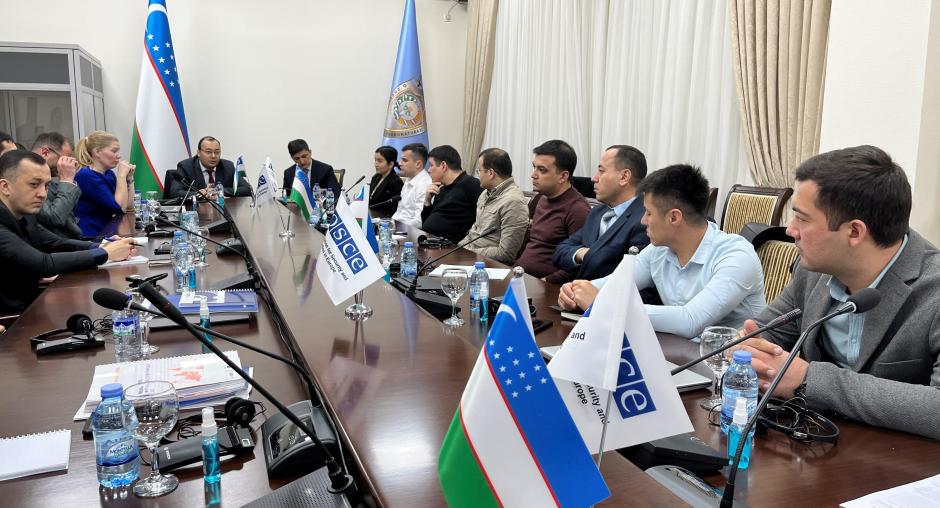Enhancing Uzbekistan’s capacities to effectively address crime by requesting electronic evidence across borders

From 24 to 27 October, the OSCE Transnational Threats Department organized a course on requesting electronic evidence across borders in Tashkent, in close co-operation with the OSCE Project Co-ordinator in Uzbekistan and the Academy of the General Prosecutor’s Office of the Republic of Uzbekistan. Developed jointly by the UNODC, Interpol, and the OSCE, with the financial support from the European Union, the course is based on the United Nations Practical Guide on Requesting Electronic Evidence across Borders.
Participants represented Uzbekistan’s Ministry of Internal Affairs and the General Prosecutor’s Office, including their respective Academies, as well as the National Cybersecurity Centre, State Security Service, and Supreme Court. The modules of the course covered available instruments for requesting electronic evidence from service providers based in foreign jurisdictions, including requests for preservation, voluntary disclosure, emergency disclosure, and mutual legal assistance, as well as channels for police-to-police co-operation. The course also discussed the importance of respecting human rights and fundamental freedoms in all these procedures.
The three-day course was followed by a one-day roundtable in which participants and experts discussed possible changes to the operational procedures of Uzbekistan’s criminal justice institutions to improve their capacities in obtaining electronic evidence from abroad.
“More and more criminal activities today are either fully committed through or facilitated by digital technologies. Electronic evidence is therefore becoming an indispensable part of all criminal investigations. As most Internet service providers are based in foreign jurisdictions, being able to obtain electronic evidence from abroad is essential for Uzbekistan’s capacities to effectively address crime and uphold the rule of law,” said Nosim Hodzhaev, Deputy Director of the International Legal Department at the General Prosecutor's Office of the Republic of Uzbekistan.
This was echoed by Evgeniy Kolenko, Head of the Academy of the General Prosecutor’s Office, who underlined the importance of the training. “Providing this sort of a training is key for our criminal justice actors to be able to fulfil their job at times of growing digitalization in Uzbekistan. Our Academy will aim to incorporate this type of education into its standard training curricula.”
A similar training was already delivered by the OSCE and UNODC in Kyrgyzstan last month and additional courses are planned in other OSCE participating States in Central Asia. This course was delivered within the extra-budgetary project “Capacity Building on Combating Cybercrime in Central Asia”, which is funded by the United States of America, Germany, and the Republic of Korea.
